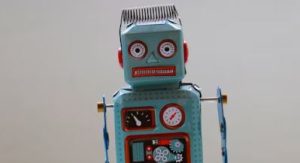
Embracing the Future: The Evolution of AI Automation
In the era of rapid technological advancement, the future of AI automation holds immense promise, reshaping industries, revolutionizing workflows, and redefining the nature of work itself. As artificial intelligence (AI) technologies continue to mature and evolve, the potential for automation to streamline processes, boost efficiency, and drive innovation is boundless. Let’s explore the exciting trajectory of AI automation and the transformative impact it promises to have on our world.
Unlocking Efficiency and Productivity:
AI automation has the power to unlock unprecedented levels of efficiency and productivity across industries. By automating repetitive and mundane tasks, AI-powered systems free up valuable time and resources, allowing organizations to focus on high-value activities and strategic initiatives. From automating data entry and document processing to optimizing supply chain management and customer service, AI automation streamlines workflows and accelerates business processes, driving operational excellence and competitive advantage.
Enhancing Decision-Making with Intelligent Insights:
Beyond streamlining routine tasks, AI automation enhances decision-making by providing intelligent insights and predictive analytics. Through advanced algorithms and machine learning models, AI systems analyze vast amounts of data, uncovering patterns, trends, and correlations that human analysts may overlook. By harnessing the power of AI-driven analytics, organizations gain actionable insights into customer behavior, market trends, and operational performance, enabling informed decision-making and driving business growth.
Transforming Industries and Workforces:
The impact of AI automation extends far beyond individual organizations, transforming entire industries and reshaping the workforce of the future. In sectors such as manufacturing, transportation, and logistics, AI-powered robots and autonomous systems are revolutionizing production processes, supply chain management, and last-mile delivery. In healthcare, AI automation is enhancing patient care through predictive analytics, personalized treatment plans, and robotic surgical assistants. As AI automation continues to proliferate, the nature of work evolves, with a shift towards roles that require creativity, critical thinking, and human empathy.
Navigating Ethical and Societal Implications:
As with any disruptive technology, AI automation raises ethical and societal implications that must be carefully considered and addressed. Concerns about job displacement, economic inequality, and the ethical use of AI-powered systems loom large, requiring proactive measures to mitigate risks and safeguard human welfare. Additionally, questions about algorithmic bias, data privacy, and transparency in AI decision-making underscore the importance of responsible AI governance and ethical stewardship.
Embracing Collaboration and Innovation:
Despite the challenges, the future of AI automation is brimming with potential for collaboration and innovation. By fostering interdisciplinary collaboration between technologists, policymakers, ethicists, and stakeholders, we can harness the transformative power of AI automation to create a future where humans and machines coexist harmoniously, driving progress, prosperity, and societal well-being. Through responsible innovation and a commitment to ethical principles, we can shape a future where AI automation empowers individuals, strengthens communities, and unlocks new possibilities for human achievement.

